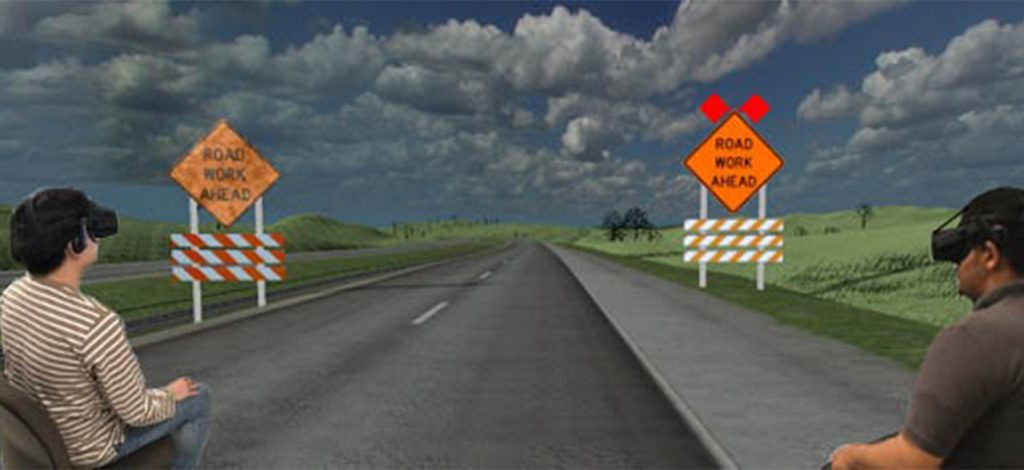July 27, 2021

Missouri Department of Transportation (MoDOT) employees will receive more realistic work zone inspection training using virtual reality (VR) thanks to a Mizzou Engineering team. Praveen Edara, chair of Civil and Environmental Engineering, is leading the project, which received funding from the Federal Highway Administration’s Accelerated Market Readiness Program earlier this year. This two-year $460,238 grant will help reimagine training the next generation transportation workforce.
Edara and his team developed an interactive training platform using real work zone scenarios. The platform places a trainee in a simulated vehicle that moves through a construction zone and asks them to identify problems such as deficient signs, compliance issues or other hazards. Workers can experience the simulation using VR headsets, 360 videos or cardboard VR viewers that work with mobile devices.
“Instead of going out in the field, this is a safer way to train them in a controlled environment while still giving them a realistic experience,” Edara said. “We started with a couple of scenarios as proof of concept, but with this federal grant, we will be able to scale up to a dozen scenarios.”
Those scenarios will include various situations such as work zones with human flaggers, nighttime construction, and high-traffic interstates. All scenarios will be modeled using field data and DOT traffic control plans.
“They will be based on real examples of poor signage, missing stripes or misplaced cones, so the trainees know what to expect when they are at an actual inspection.” Edara said.
The initial project, funded by MoDOT, wrapped up last year. Thirty-four MoDOT employees were part of a focus group that evaluated the scenarios. In a follow-up evaluation, 100% of participants agreed that the simulation was a realistic representation of an actual work zone, and 97% agreed that the VR training was useful.
In a separate but related project, Edara has received a grant from the Texas Department of Transportation to provide similar training modules. Edara’s team will create the scenarios using data and policies from Texas, and the University of Texas at Arlington will help with implementation and evaluation.
Civil and Environmental Engineering Postdoctoral Researcher Zhu Qing, CEE Professors Carlos Sun and Henry Brown, and Bimal Balakrishnan from the Architecture Studies department are also part of the research team. Two CEE PhD students, Khaled Aati and Daeyeol Chang, were part of the previous MoDOT project.